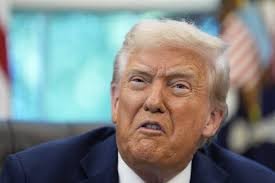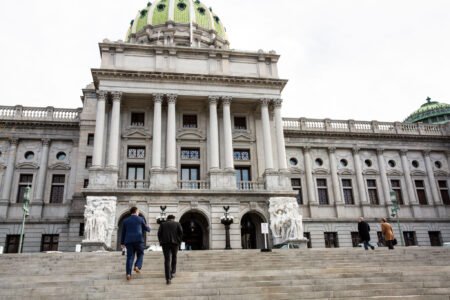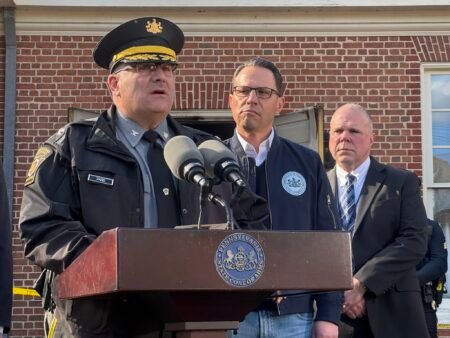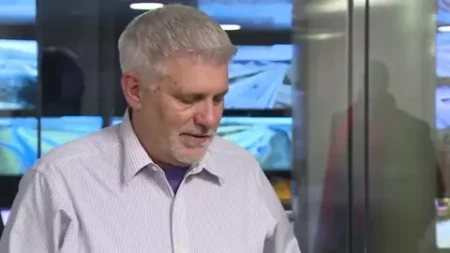Donald Trump suggested on Friday that his administration will continue to pursue charges against people he views as political adversaries, only a day after former FBI director James Comey was indicted. The comments, delivered while Trump was leaving the White House for a golf tournament in New York, underline his growing campaign against critics. “I think there’ll be others,” Trump told reporters, insisting that some opponents were “corrupt” and part of the “radical left.” His remarks came after the Department of Justice announced charges against Comey, a move that drew intense criticism from legal experts and lawmakers.
Comey’s indictment was filed in federal court in Alexandria, Virginia. Prosecutors claim that in 2020, he misled Congress when testifying that he had never authorized FBI staff to leak to the media. According to the charges, Comey asked his friend, Columbia University law professor Dan Richman, to share details about the Hillary Clinton email probe. At that time, Richman briefly served as a special government employee for the FBI. The indictment alleges Comey’s testimony was false, yet questions remain over the strength of the case. A memo from Erik Siebert, the interim U.S. attorney for the Eastern District of Virginia at the time, had recommended against prosecution. Siebert concluded there was not enough evidence to secure a conviction. He was dismissed soon after by Trump and replaced by Lindsey Halligan, a former White House aide with no trial experience. Halligan pressed forward and presented the case herself to a grand jury.
The grand jury returned an indictment on two counts but rejected a third. Court records show that only 14 of the 23 grand jurors voted to approve one of the charges, just above the legal minimum. Critics argue the case appears weak and politically motivated. The Comey case has raised concerns that the Justice Department is being used to settle political disputes. Analysts fear the indictment could encourage Trump’s appointees to push more cases against other prominent rivals.
In recent weeks, Trump has focused on several high-profile figures. Among them is New York attorney general Letitia James, who led a civil fraud case against him last year. He has also singled out Democratic senator Adam Schiff, who played a central role in Trump’s first impeachment trial. Both James and Schiff are now reportedly facing scrutiny over separate mortgage fraud claims. Former CIA director John Brennan has also drawn Trump’s attention. Brennan oversaw the U.S. intelligence community’s 2016 findings on Russian election interference, which Trump has long disputed. The administration recently opened a criminal inquiry into Brennan’s actions. Another target is John Bolton, Trump’s former national security adviser who later became a sharp critic. Last month, FBI agents searched Bolton’s home and office for allegedly mishandled classified documents. His legal team insists the documents had already been declassified.
Trump has been outspoken about his desire for prosecutions. Last weekend, before Comey’s indictment, he urged Attorney General Pam Bondi to take action against Comey, Schiff, and James. On his social media platform, Truth Social, Trump claimed, “They impeached me twice and indicted me five times over nothing. Justice must be served now.” These moves highlight how far Trump is willing to push his campaign of retribution. Supporters argue that his actions are about holding opponents accountable, while critics warn that they erode the independence of the justice system.
The indictment of James Comey is seen as a test case that could shape future actions against Trump’s rivals. Legal scholars say the charges appear fragile, raising doubts about whether they will hold up in court. Still, the message from Trump is clear: he intends to continue pressing for investigations into those who opposed him. As the political climate intensifies, the Justice Department’s credibility is likely to face more scrutiny. Observers warn that using prosecutions as a tool against rivals risks undermining public trust. Whether the charges against Comey succeed or fail, Trump’s broader effort to expand his political retribution campaign shows no signs of slowing down.







